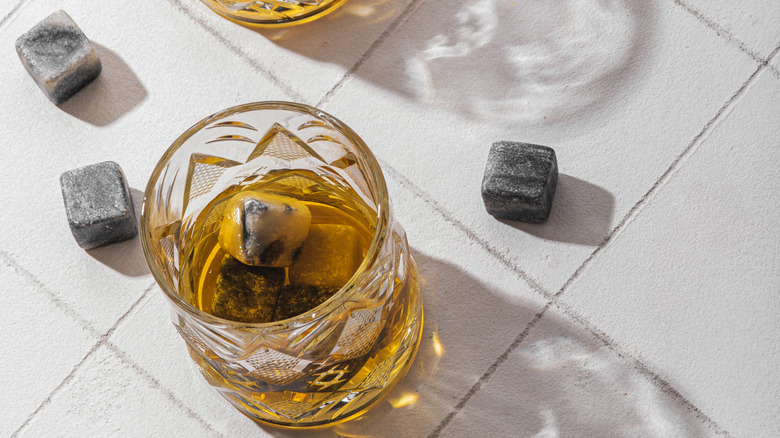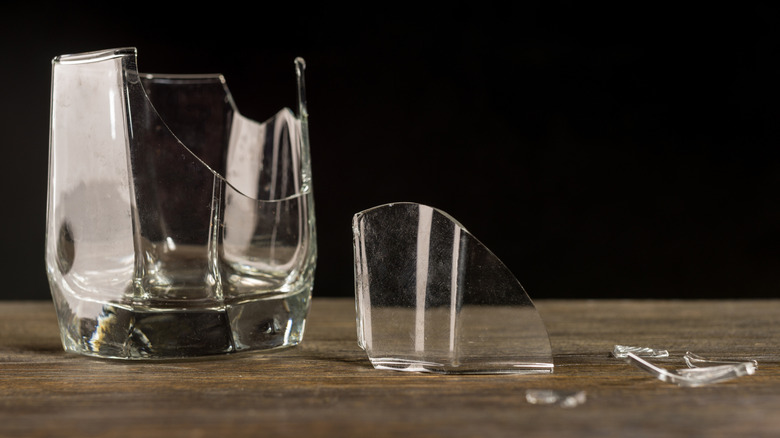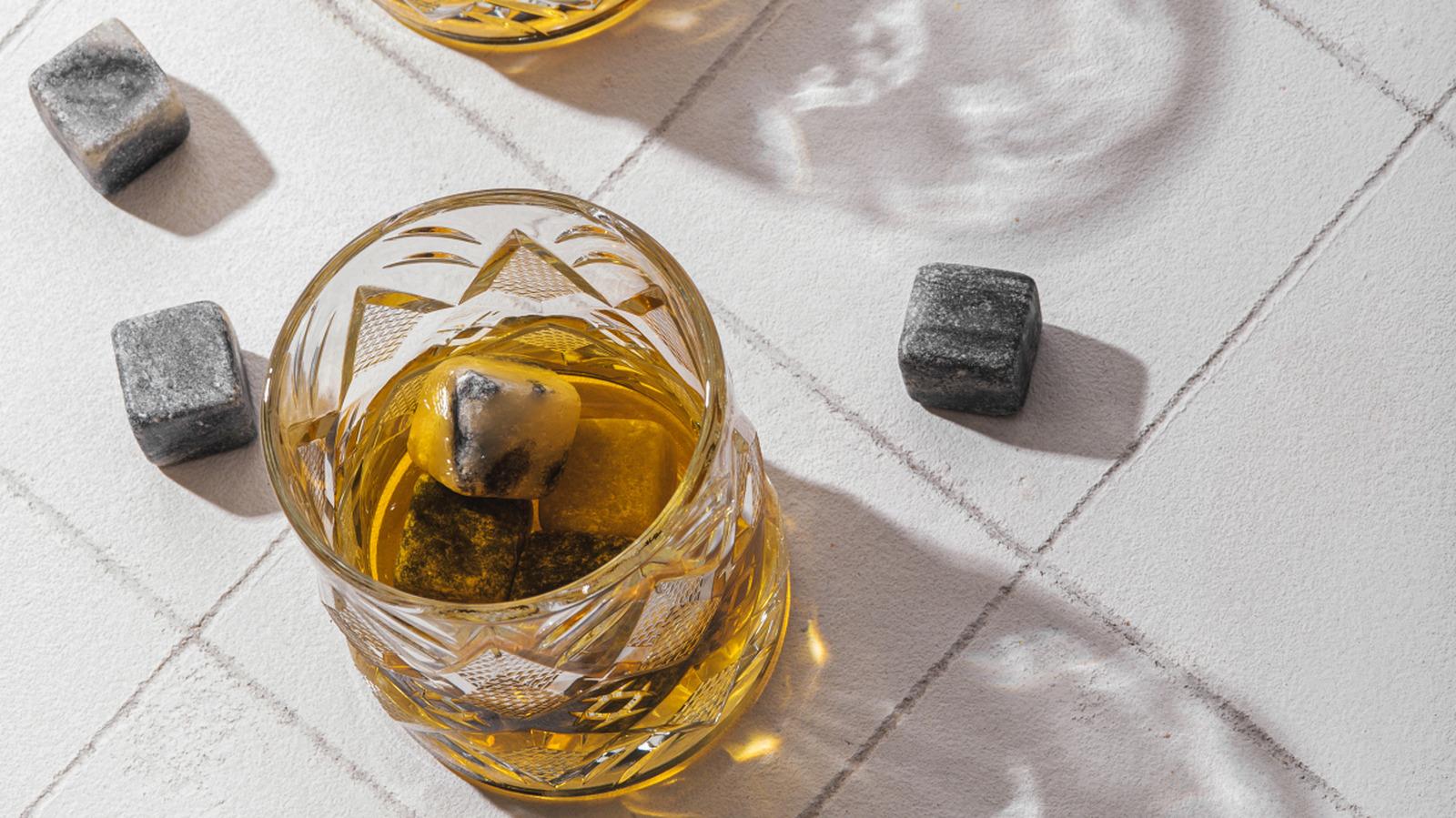
Senko Nelly/Getty Images
Whiskey has become an increasingly popular type of alcohol in recent years and seems poised to continue this trend for the foreseeable future. Along with the countless varieties of the spirit out there, the surge in popularity has also led to a whole suite of extra tools and items supposedly designed to improve your drinking experience. One of the most common is whiskey stones, small, cube-shaped rocks kept in the freezer and added to a glass of whiskey to chill it. Although they might seem like a cool convenience, many whiskey lovers ignore a significant potential downside: damage to their glass.
It simply comes down to the difference in hardness between a typical ice cube and most whiskey stones, which can be significant. While ice can typically be dropped into any type of whiskey glass without much thought, doing the same with whiskey stones could chip your favorite glass or even shatter it altogether. The same goes for casually swirling a drink: harmless with ice, but potentially a scratch nightmare with the harder, more abrasive whiskey stones, which are typically made from soapstone, marble, or granite.
Aside from the damage to your glassware, this can also result in serious health issues. Glasses chipped near the rim can cause cuts on your lips, mouth, or tongue, while swallowing even small, hard-to-detect shards or pieces of glass could lead to damage to the throat, stomach, or intestines.
Using whiskey stones right -- or not at all

Tattoboo/Shutterstock
Avoiding these hazards while using whiskey stones is fairly straightforward: Be gentle when adding them to your glass and when drinking out of it. It's hard to argue with some of their benefits when used correctly. Unlike ice, they're endlessly reusable and preserve the authentic, undiluted flavor of the whiskey, without water introduced by melting ice.
On the other hand, some whiskey experts even support a bit of dilution in many cases. This is especially true with high- or barrel-proof whiskeys, which can be so strong that a small amount of water can actually help better express their flavors. Additionally, slightly less intense whiskey can be a good starting point for those still developing their whiskey palates. For these reasons, it might be worth skipping the whiskey stones altogether in some cases, regardless of how carefully they're used.
To be sure, there are a lot of mistakes everyone makes when drinking whiskey. However, damaging your glassware (and potentially yourself) by misusing whiskey stones is among the easiest to avoid.



